| SMHRIC |
| June 27, 2023 |
| New York |
|
|
|
|
Southern Mongolian delegation meets with Ms. Sanae Takaichi, Member of Japanese Parliament and the President of Parliamentary Support Group for Southern Mongolia (SMHRIC-20230608) |
From June 7 – June 9, 2023, a delegation of the Southern Mongolian Human Rights Information Center (SMHRIC) visited Tokyo, Japan to meet with members of Japanese Parliament and other key personnel who have expressed concerns regarding the deteriorating conditions of human rights in Southern Mongolia. The delegation consisted of SMHRIC Director Mr. Enghebatu Togochog and board members Dr. Chuluu Ujiyediin and Mr. Dugarjab L. Hotala.
Japanese Parliament members who received the delegation in the Japanese Diet Building included Ms. Sanae Takaichi, Member of the House of Representatives and the President of the Parliamentary Support Group for Southern Mongolia; Mr. Jin Matsubara, Member of the House of Representatives and the Former Minister of the Abduction Issue; Mr. Hiroshi Yamada, Member of the House of Councilors and the Executive Director of the Parliamentary Support Group for Southern Mongolia; Mr. Yuichiro Wada, Member of the House of Representatives; Mr. Makoto Oniki, Member of the House of Representatives, Former State Minister of Defense and the Secretary of the Parliamentary Support Group for Southern Mongolia; Ms. Yasue Funayama, Member of the House of Councilors, Co-chair of the Nonpartisan Parliamentary Association for Reconsidering Human Rights Diplomacy and the Co-chair of the Japanese Parliamentary Alliance on China; and Mr. Shigefumi Matsuzawa, Member of the House of Councilors and the Former Governor of Kanagawa Prefecture.
The SMHRIC delegation also had the honor of testifying at the “Roundtable on Southern Mongolia” before the Japanese Parliament. Parliament members in attendance included Ms. Eri Arfiya, Member of the House of Representative and Mr. Yoshiaki Harada, Former Minister of the Environment and Member of the House of Representatives; staff members and representatives from the offices of Mr. Minoru Kiuchi, Member of the House of Representatives, State Minister of Foreign Affairs and the Vice President of the Parliamentary Support Group for Southern Mongolia; Mr. Akimasa Ishikawa, Member of House of Representatives and the Secretary General of the Japan-Tibet Parliamentary Association and the Secretary of the Parliamentary Support Group for Southern Mongolia; Hiromi Mitsubayashi, Member of the House of Representatives, Secretary General of the Parliamentary Support Group for Uyghur and the Secretary of the Parliamentary Support Group for Southern Mongolia; Mr. Hiroshi Nakada, Member of the House of Councilors; Mr. Masamune Wada, Member of the House of Councilors; Mr. Rintaro Ishibashi, Member of the House of Representatives; Mr. Hirofumi Ryu, Member of the House of Representatives and the Executive Director of the Japan-Mongolia Parliamentary Friendship Association; Mr. Nobuyuki Fukushima, Member of the House of Representatives; Mr. Keiro Kitagami, Member of the House of Representatives; and Mr. Tsunehiko Yoshida, Member of the House of Representatives.
Following these meetings, on June 9, 2023, the Japan Institute for National Fundamentals (JINF), one of the country’s most influential public and foreign policy think tanks, invited the SMHRIC delegation to its headquarters in Tokyo to testify before its President, Ms. Yoshiko Sakurai and other members, regarding China’s abuses in Southern Mongolia.
The cases that the delegation brought to the attention of Japanese Parliament and JINF include the following:
1. The case of Mr. Hada and his family members. In 1995, as the most prominent leader of national freedom movement of Southern Mongolia, Mr. Hada was arrested and sentenced to 15 years in prison. Due to his categorical refusal to admit to any purported crimes or wrongdoing, he was handed an additional four years of extrajudicial detention in a “black jail” upon his presumed release in December 10, 2010. Upon completing this additional sentence, Hada was placed on indefinite house arrest until his disappearance in September 2020. In 2012, Hada’s wife Ms. Xinna, an outspoken critic concerning human rights violations in Southern Mongolia, was arrested and detained multiple times before being sentenced to three years in prison. At the age of 17, son Uiles was dealt a three-year prison sentence on the basis of multiple fabricated charges. The family’s welfare and whereabouts have remained unknown since September 2020.
2. The case of Mr. Lhamjab Borjigin. A renowned Southern Mongolian writer and historian, Borjigin was sentenced to two years in prison in 2019 for writing and publishing a book titled China’s Cultural Revolution. Borjigin interviewed hundreds of survivors for the book, which brought to light the large-scale genocidal campaign launched by the Chinese Government against the entire Mongolian population in Southern Mongolia in the late 1960s and early 1970s. Following the completion of his two-year sentence term, Borjigin was placed under indefinite house arrest. In March of this year, Borjigin managed to escape from China to Ulaanbaatar, the capital of the independent country of Mongolia. On May 3, 2023, Borjigin was arrested by Chinese police on Mongolian soil and deported back to China in cooperation with Mongolian authorities.
3. The case of Mr. Munkhbayar Chuluundorj. A long-time writer, journalist, human-rights defender, and native citizen of the independent country of Mongolia, Chuluundorj was sentenced to a ten-year prison term this past year by Mongolian authorities for “collaborating with a foreign intelligence agent [the Indian Embassy’s Second Secretary Mr. Radrendra Ja Manan] to engage in spying activities against the People’s Republic of China.” The case raised international concern as an indication of transnational repression, in which Chinese authorities pressure the governments of other sovereign nations to punish their own citizens for criticizing China.
4. The case of ongoing cultural genocide. Beginning September 2020, China implemented a new course of repressive language policy known by the euphemism “Second Generation Bilingual Education,” whose objective was the comprehensive eradication of the Mongolian language from all educational systems. New evidence confirms that the Central Government of China is determined to extinguish the Mongolian language, culture and identity from Southern Mongolia as part of its larger campaign of “firmly inculcating the Chinese nationality common identity” in Southern Mongolia. Mongolians and human rights supporters around the world widely consider this movement an act of “cultural genocide.”
Welcoming the Japanese Parliament’s recent move to establish the Parliament Support Group for Southern Mongolia, the SMHRIC delegation expressed its gratitude to parliament members, and especially to members of the Support Group, and made the following recommendations to Japanese Parliament:
1. Pass resolutions and express Japanese Parliament’s concerns regarding the cases of Mr. Hada, Mr. Lhamjab Borjigin and the ongoing cultural genocide, as it did in the case of Mr. Munkhbayar Chuluundorj;
2. In consideration of his influence as an iconic figure of the Southern Mongolian national freedom movement, nominate Mr. Hada to the Nobel Peace Prize, as two Japanese Parliament members did Mr. Munkhbayar Chuluundorj in February of this year;
3. Whenever possible, urge the Japanese government to promote awareness of Southern Mongolian human rights issues on the international stage, as it did for Tibet, East Turkistan and Hong Kong at the recent G7 Summit.
Before concluding the visit, the SMHRIC delegation expressed its heartfelt appreciation for Mr. Hidetoshi Ishii, a national strategist, professional lobbyist, longtime human-rights defender and staunch advocate for national freedom for all oppressed nations. The delegation also showed sincere gratitude to his wife Ms. Yoko Ishii, an influential blogger and activist who spoke on behalf of the voiceless oppressed on multiple news and television programs, including the acclaimed “Sara Carter Show.”
“Not only did Mr. Ishii facilitate our interactions with Japanese Parliament members and other supporters during our visit,” said Mr. Enghebatu Togochog, Director of the SMHRIC, “but he has played a crucial role in bringing these issues to light and lobbying Japanese Parliament for the establishment of the Parliamentary Support Group for Southern Mongolia.”
|
|
|
Meeting with Mr.
Hiroshi Yamada
(middle), Member of
the House of
Councilors and
the Executive Director
of the Japanese
Parliamentary
Support Group for
Southern Mongolia
|
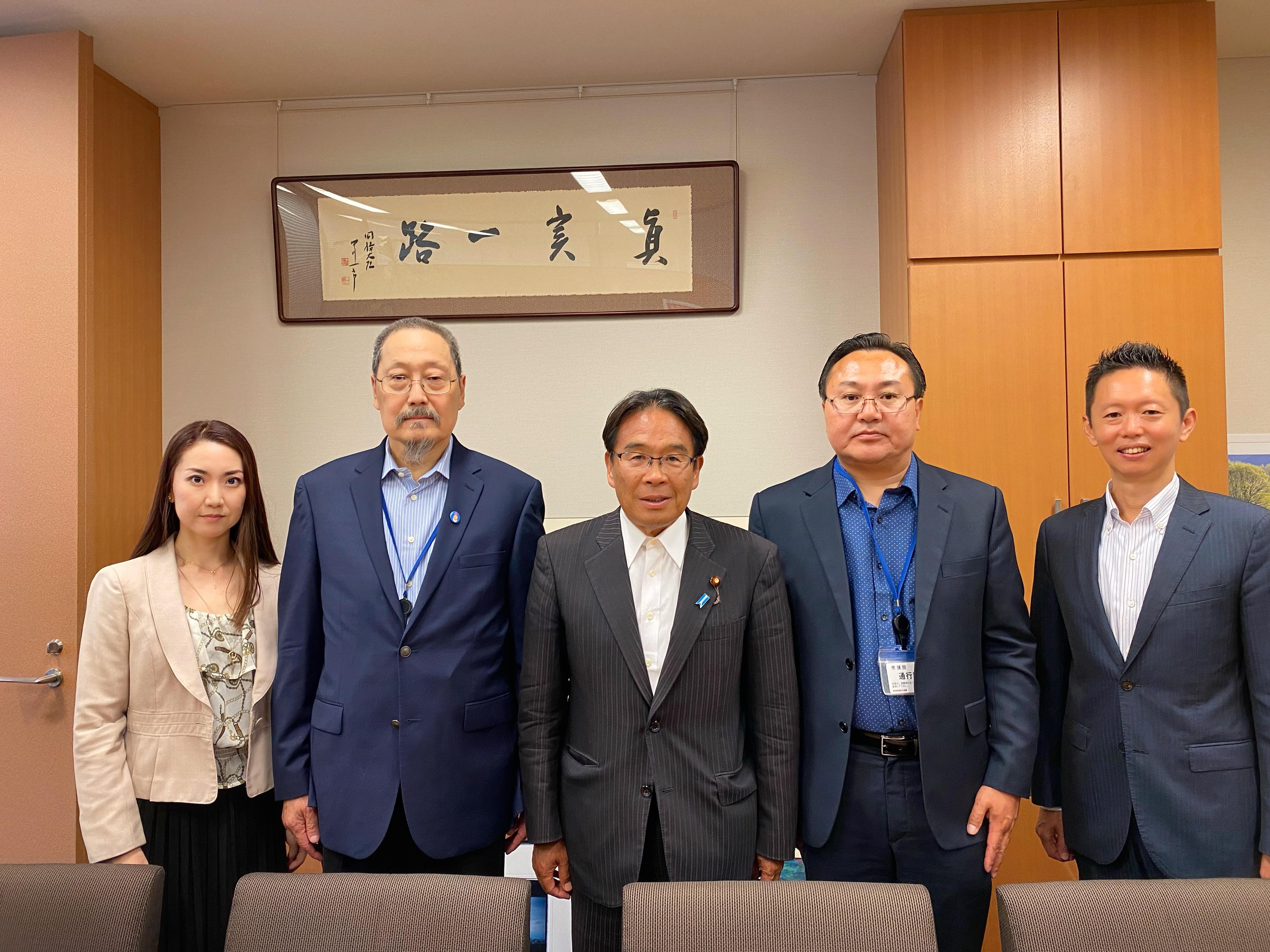 |
|
Meeting with Mr. Jin
Matsubara (middle),
Member of the House
of Representatives
and the Former
Minister of the
Abduction Issue
|
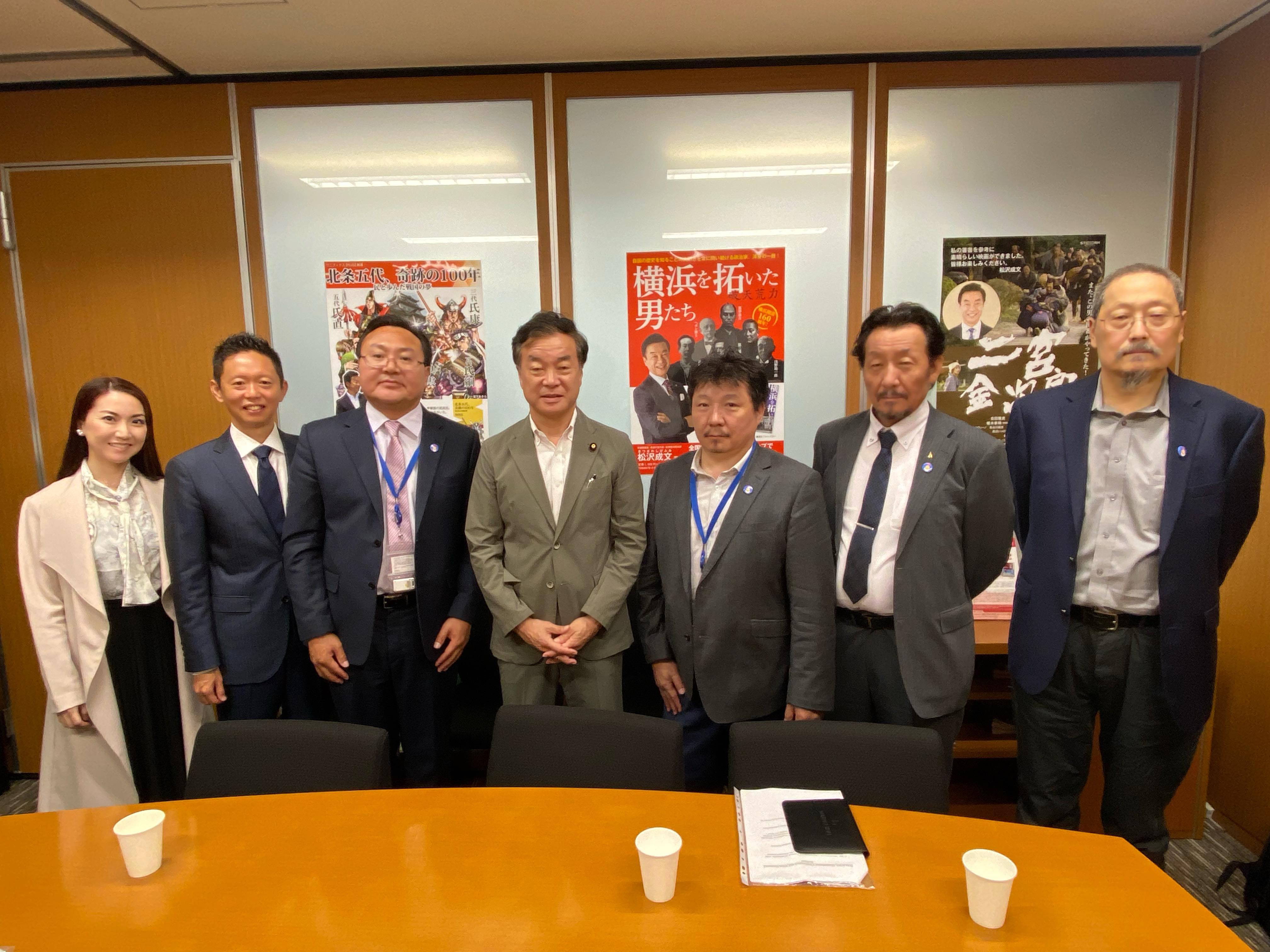 |
|
Meeting with
Shigefumi Matsuzawa
(middle), Member of
the House of
Councilors and the
Former Governor of
Kanagawa Prefecture
|
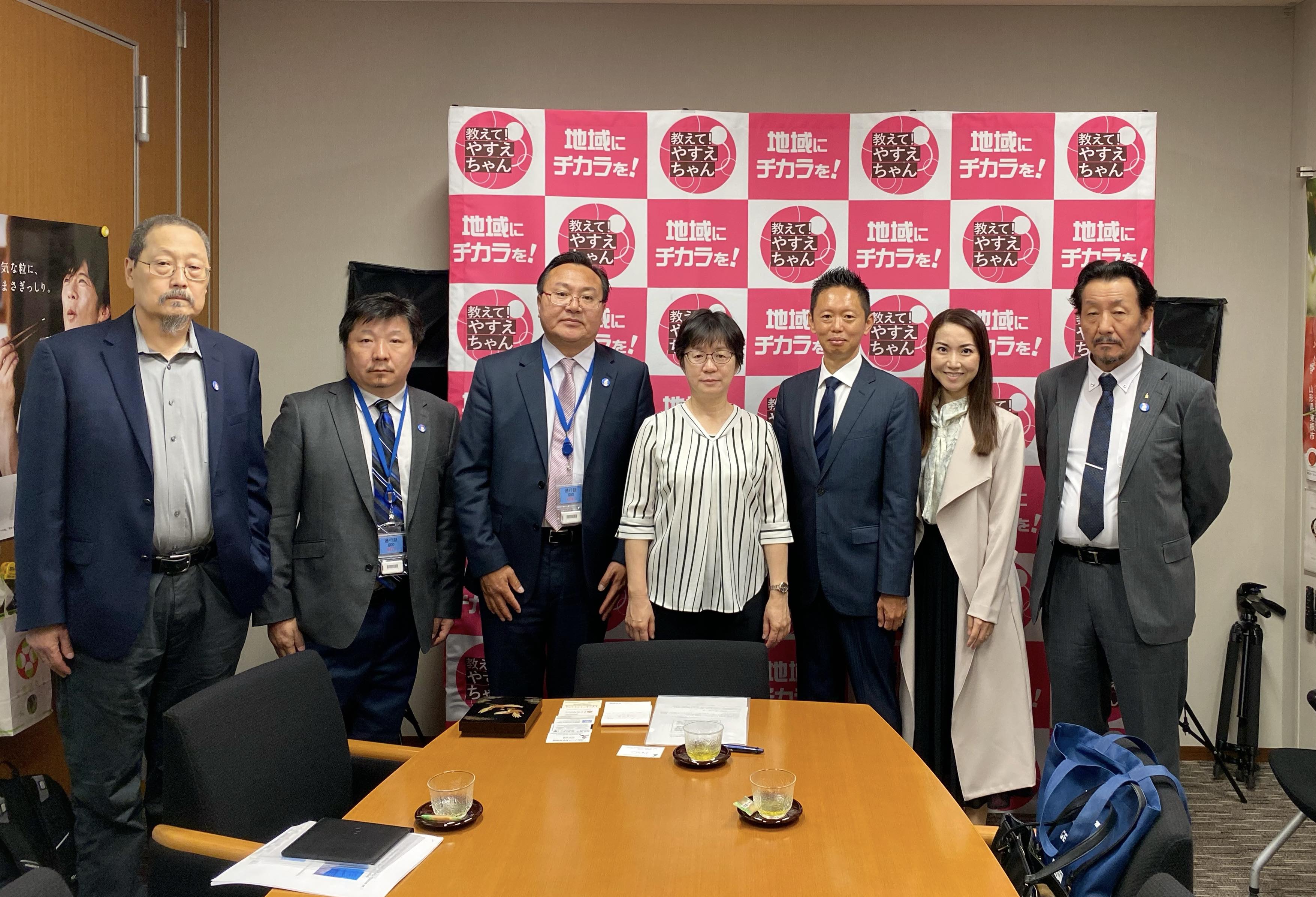 |
|
Meeting with Ms.
Yasue Funayama
(middle), Member of
the House of
Councilors, Co-chair
of the Nonpartisan
Parliamentary
Association for
Reconsidering Human
Rights Diplomacy and
the Co-chair of the
Japanese
Parliamentary
Alliance on China
|
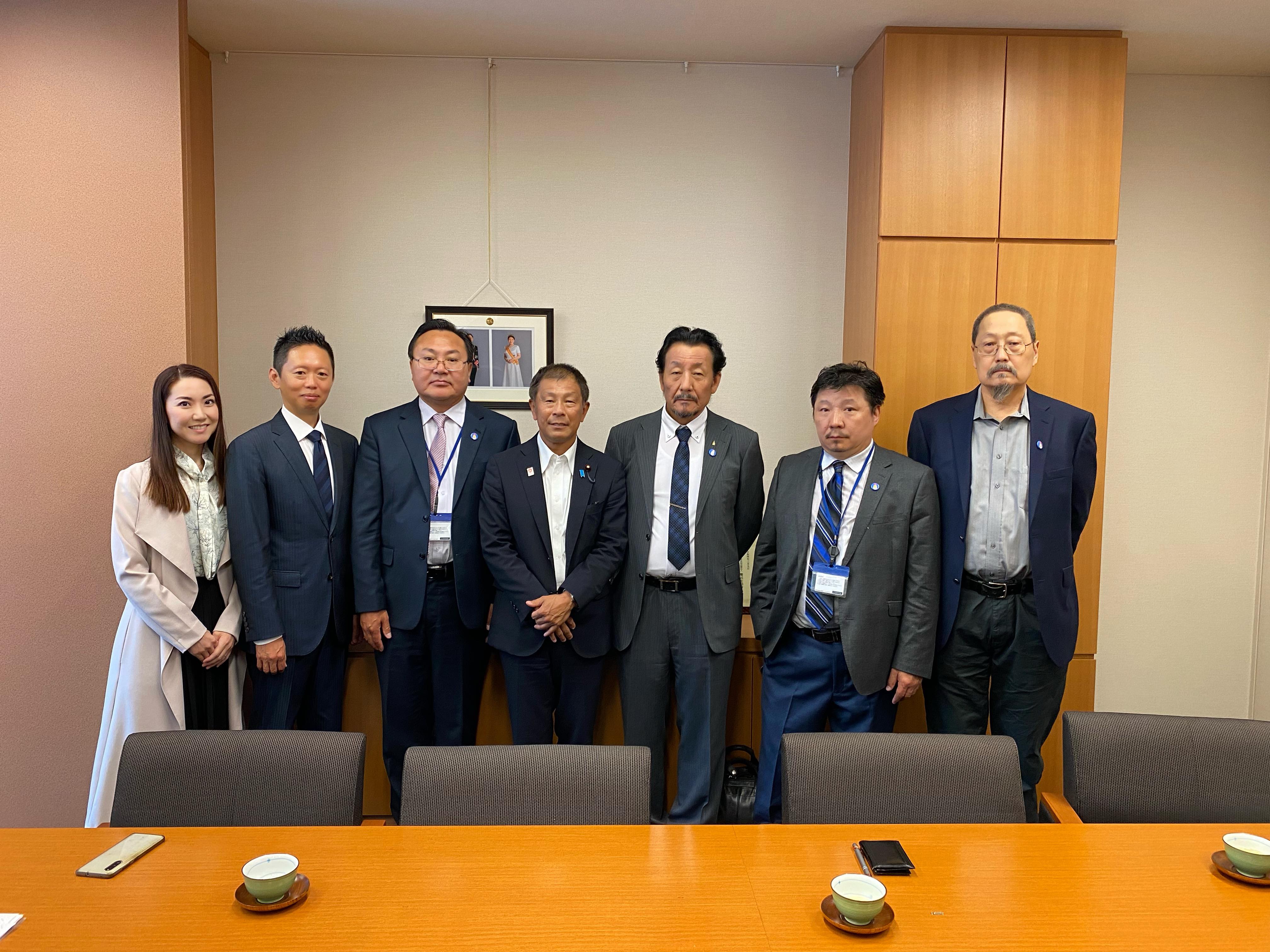 |
|
Meeting with Mr.
Yuichiro Wada
(middle), Member of
the House of
Representatives
|
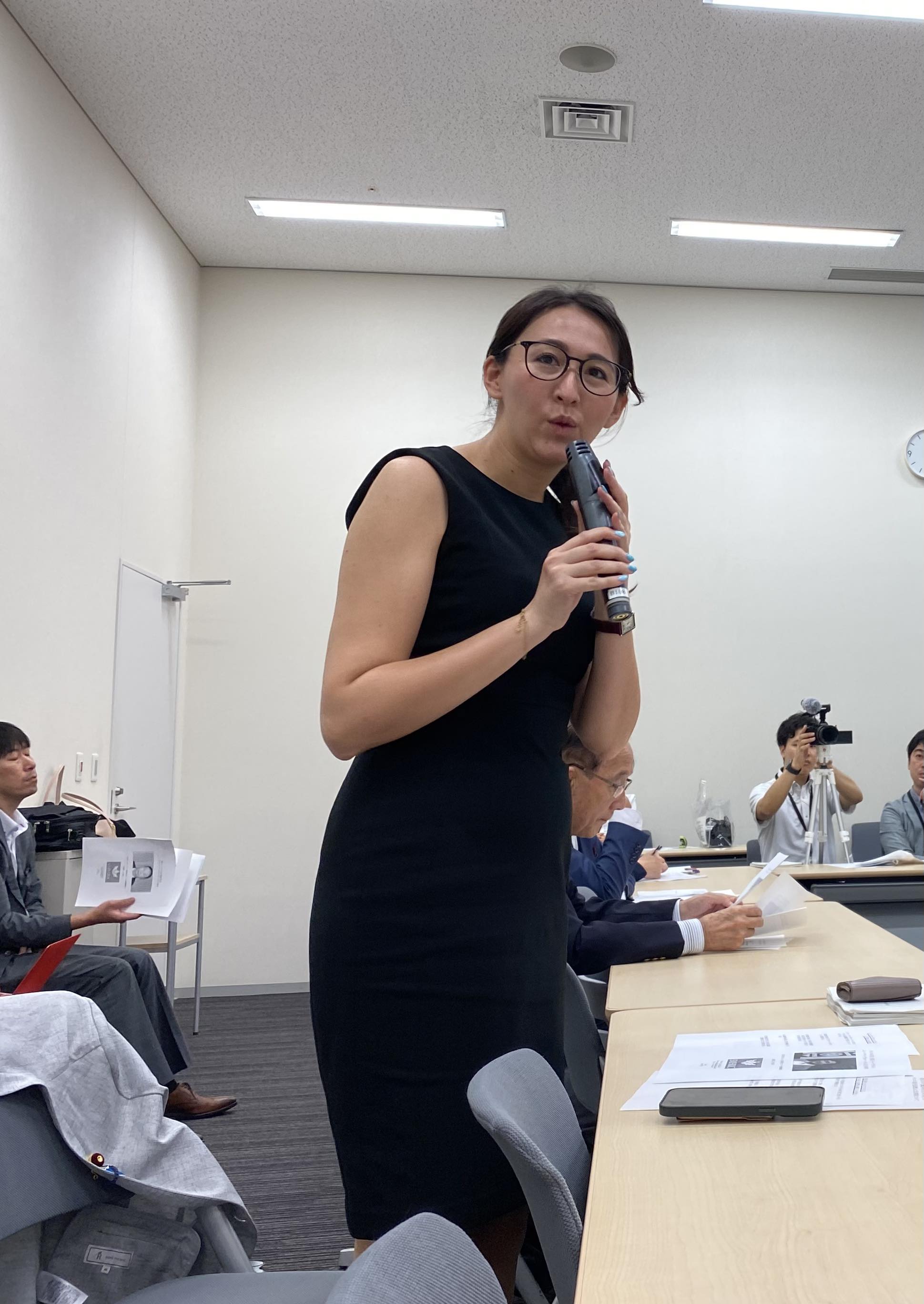 |
|
Ms. Eri
Arfiya, Member of the House of
Representative at
the Roundtable on
Southern Mongolia
|
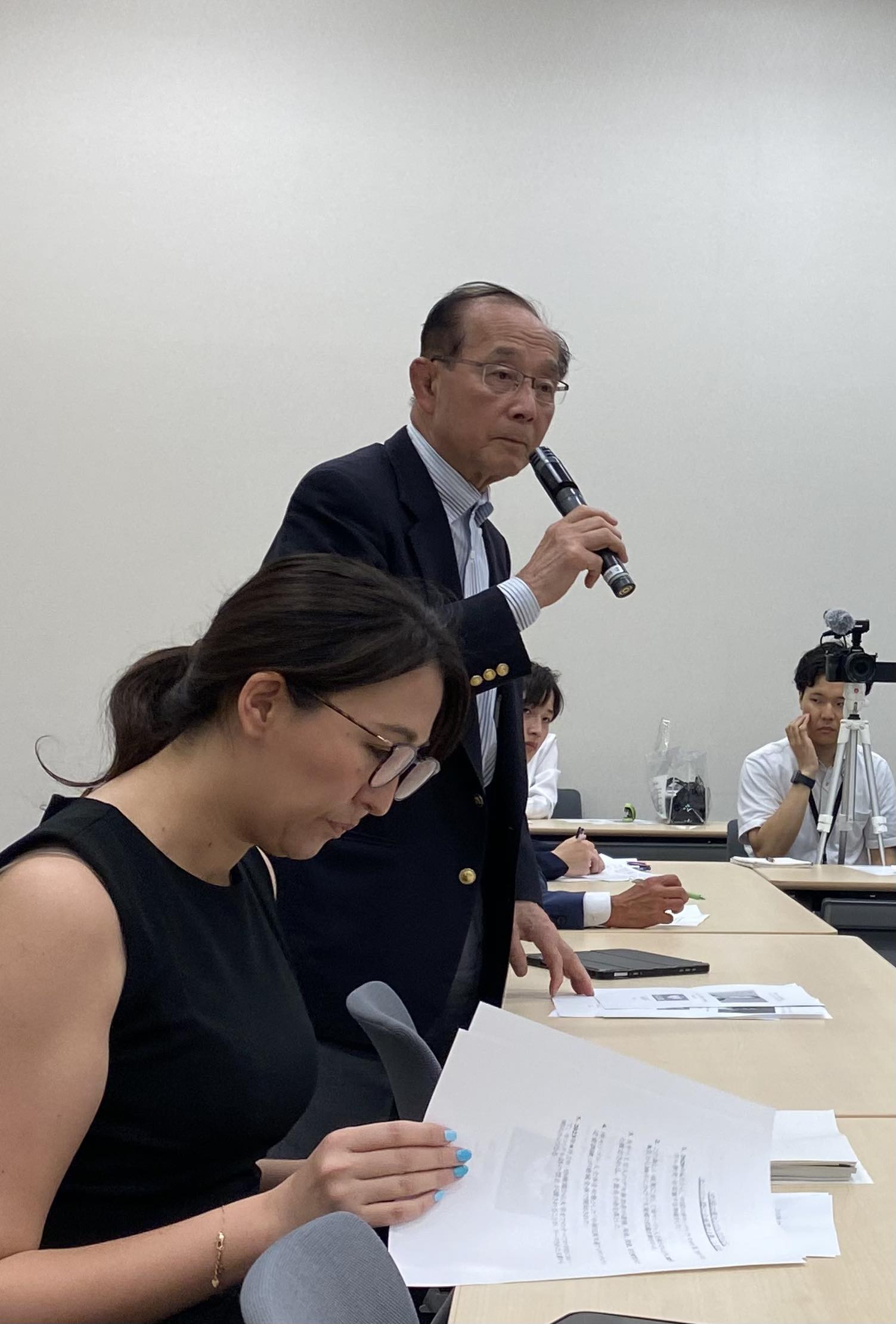 |
|
Mr. Yoshiaki Harada,
Former Minister of
the Environment and
Member of the House
of Representatives
|
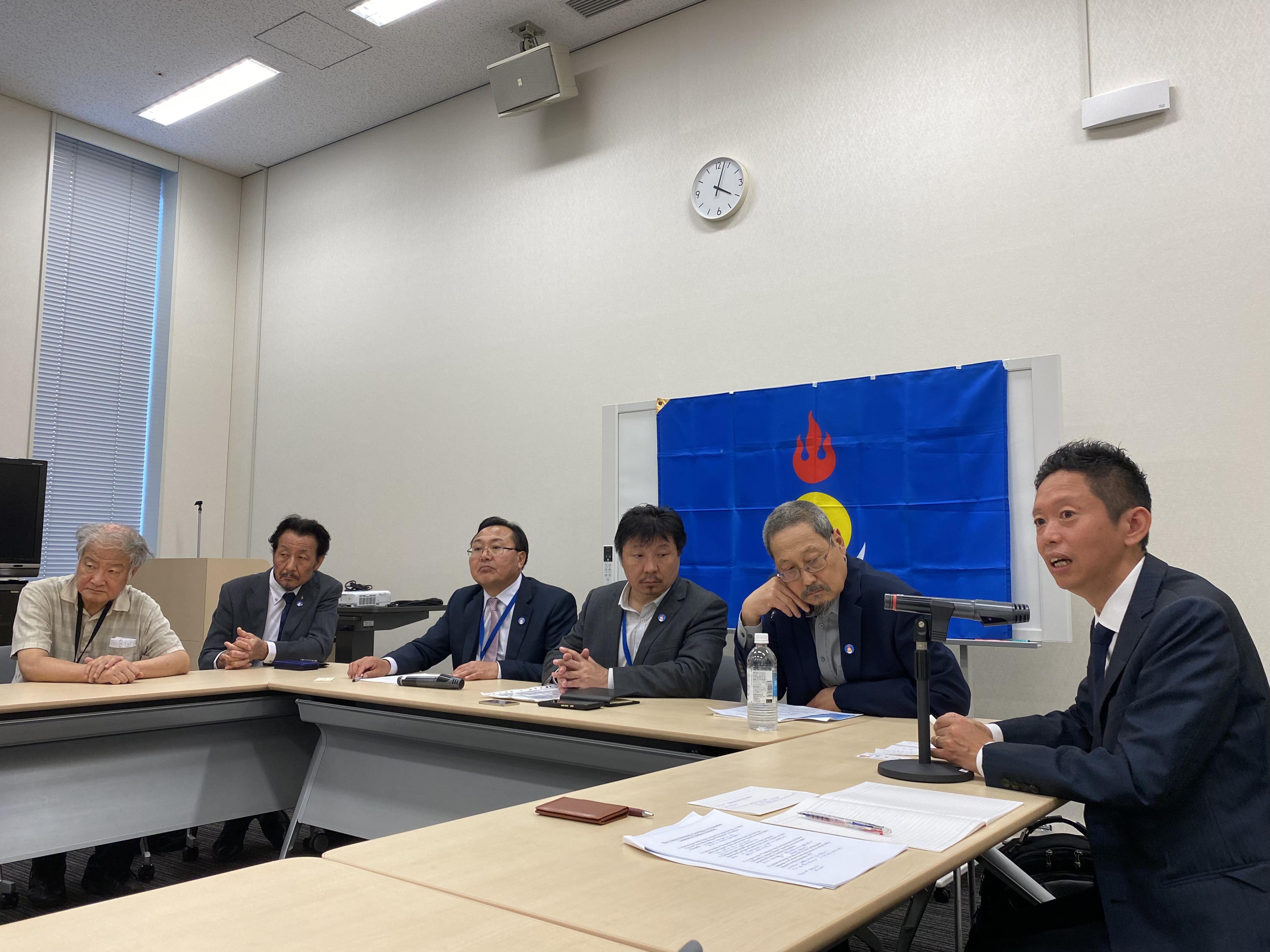 |
|
"Roundtable on
Southern Mongolia"
at the Japanese
Parliament
|
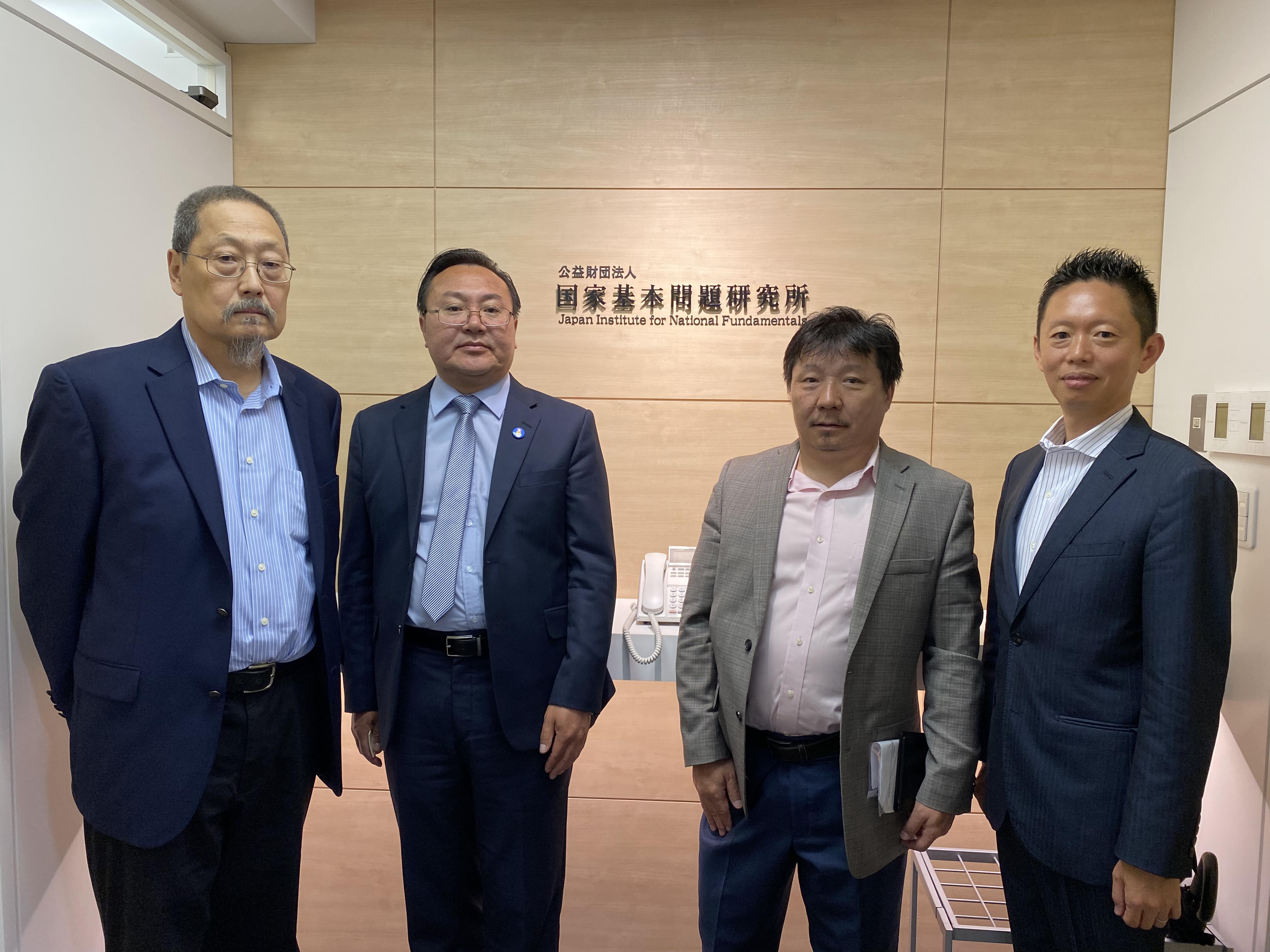 |
| At the Japan Institute for National Fundamentals |



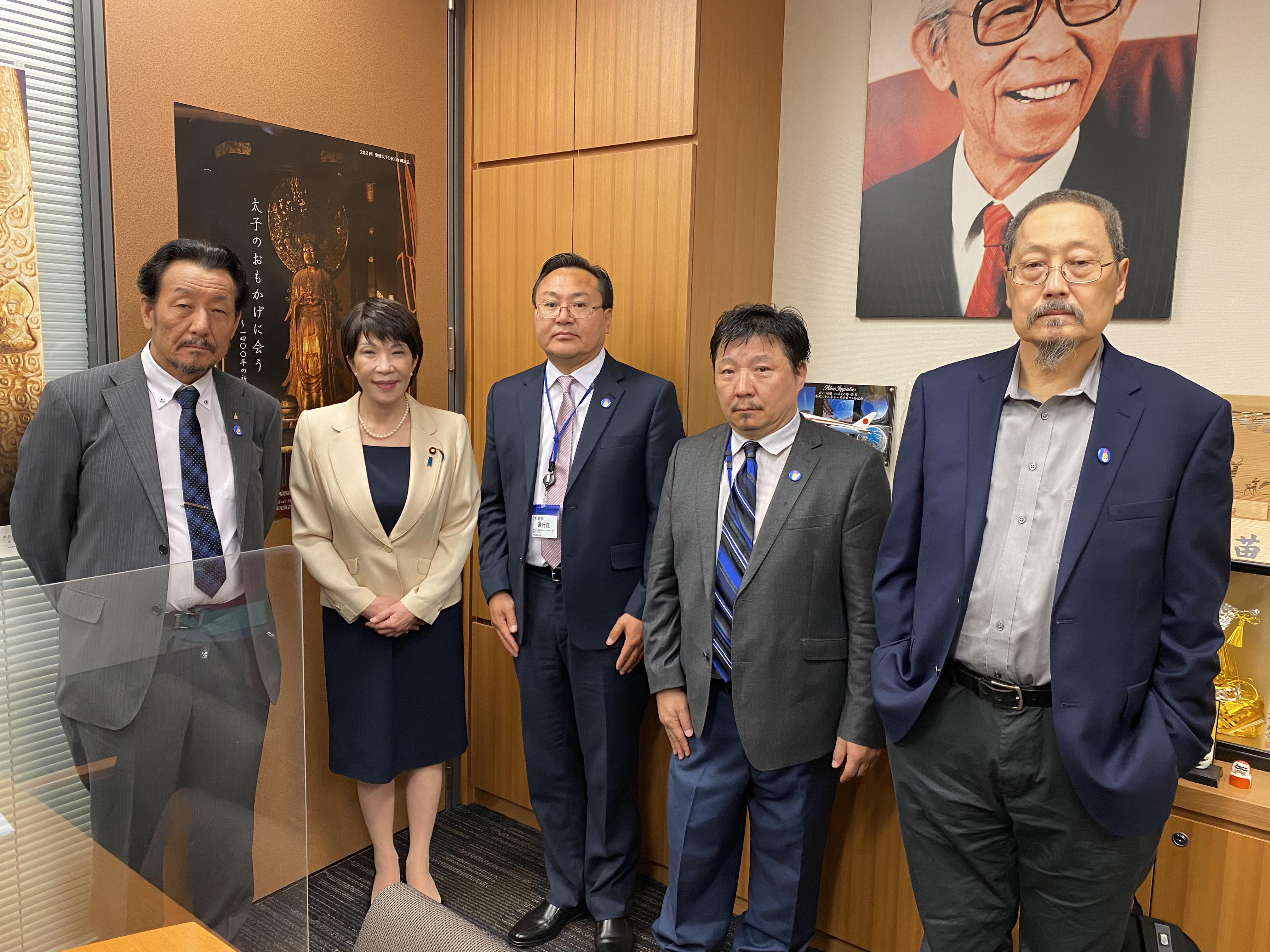
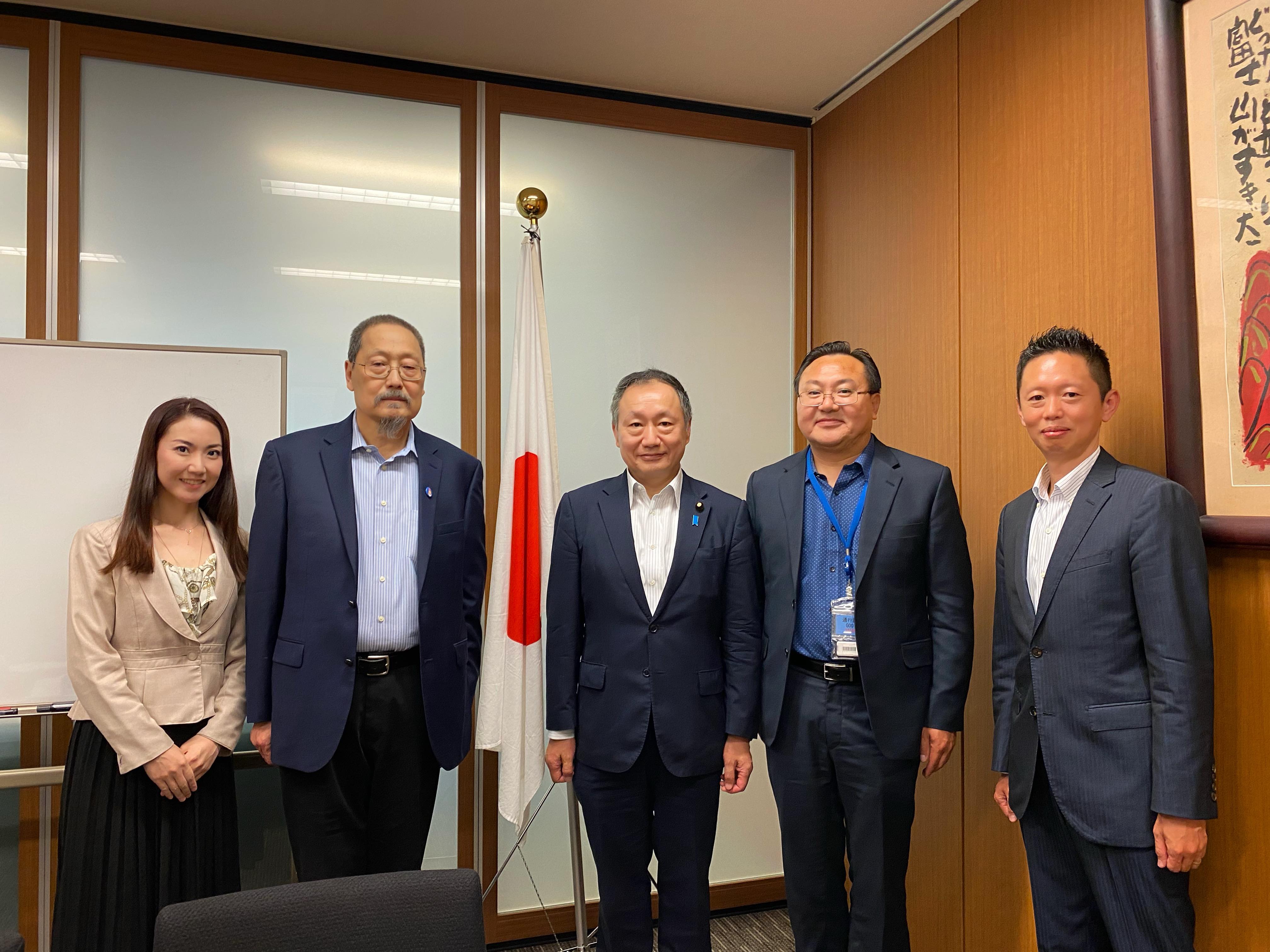


 Beyond
Great Walls: Environment, Identity, and Development on the Chinese
Grasslands of Inner Mongolia
Beyond
Great Walls: Environment, Identity, and Development on the Chinese
Grasslands of Inner Mongolia China's
Pastoral Region: Sheep and Wool, Minority Nationalities, Rangeland
Degradation and Sustainable Development
China's
Pastoral Region: Sheep and Wool, Minority Nationalities, Rangeland
Degradation and Sustainable Development The
Ordos Plateau of China: An Endangered Environment (Unu Studies on
Critical Environmental Regions)
The
Ordos Plateau of China: An Endangered Environment (Unu Studies on
Critical Environmental Regions)